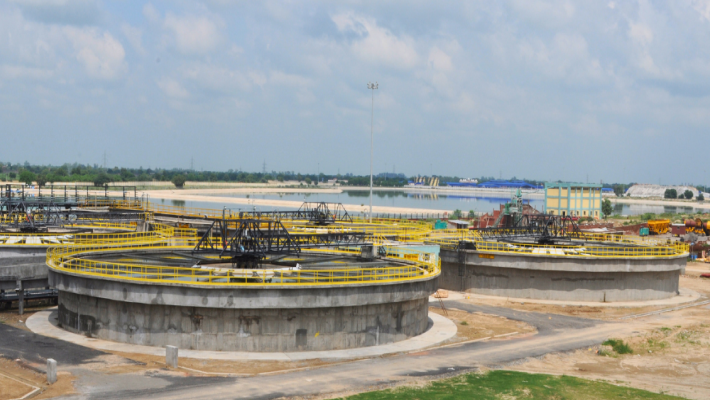Digitalization is changing the face of the oil & gas sector by breaking clear boundaries between physical-digital geographical regions. The energy supply is revolutionized through the 4IR technologies like cloud computing, Artificial Intelligence AI and Big Data. With these technologies, we will meet the world’s demand for energy – by stepping up the productivity coupled with falling levels of CO2 while delivering next-generation products and materials. This advantages strategically coordination of the 4IR technologies are seen as a future that will be sustainable and highly effective for the oil and gas industry. Also, digitalization not only boosts the efficiency but also acts as a driver for innovations by supporting labour force capable of applied the knowledge on digitized skills and creates new jobs. Digitalization adopted by our company helps to eliminate the carbon footprint from the processes we employ, which proves that every matter is addressed with sustainability and environment in mind. IoT innovations have revolutionized operations where efficiency and safety have increased significantly. They allow for the real-time equipment and pipeline monitoring, predictive maintenance, as well as remote operations that reduce downtime while also minimizing risks. The article will further explain why IoT has become a game-changer and how it streamlines the resource utilization with ultimate focus on personnel’s welfare in this critical industry.
IoT Evolution: From Sensors to Innovative Data Management Strategies
The network of the interconnected objects forms the Internet of Things (IoT) in Oil and Gas industry which includes wearable devices, vehicles, equipment buildings as well as an enormous amount of other things encompassed with electronics software sensors as a great variety electronic street implant. This ability to pass the data without an operator enables the unparalleled collection and transmission of large volumes of information among devices or via a centralized managerial platform. The oil and gas sector’s forward-looking companies are now steering their IoT initiatives away from the underlying sensors and “Intelligent” devices exclusively. Rather, they focus on the growth of radical approaches to the data management, utilizing present “brownfield” IoT infrastructure and uncovering new industry practices through innovative business strategies.
Why do we need digital transformation and IoT?
The demand for the oil and gas industry keeps on growing over time. There is very much focus in this sector from the individuals, even more on the transportations. The sustainability of this industry is very permanent as the demand continues to increase. However, the technology has taken over every industry with the widespread use of IoT everywhere. Due to this transformation the business processes in this industry become automated. It can minimize the costly downtown time, automate several processes, and enhance efficiency by performing across all production phases. Here’s a comprehensive overview of why IoT is crucial in the oil and gas sector:
Real-time Equipment Performance Monitoring
Sensors based tank monitoring: Sensors can be deployed due to the Internet of Things, which allows for monitoring equipment performance and inventory levels in real-time. This information fuels into the cloud-based digital dashboard, giving stake holders an instant view of the condition on tanks which ensures operational efficiency and avoids any potential breakdown.
Operations Efficiency and Cost Reduction
Acoustic Operations Monitoring: IoT solutions involving acoustic sensors take the consistent measurements of oil composition and flow rates. This information is very essential for the streamlining operations, minimizing unnecessary use of costly equipment and saving on the operational costs.
Project Management and Analysis
Digital Twin for Projects: Digital twins for the physical assets resulted in a deep analysis and simulation. This contributes alot to the change analysis, enhancing project management and streamlining decision-making processes throughout the entire course of a given project.
Exploration and Production Optimization
Seismic Exploration Sensors: Seismic sensors that use the Internet of Things play a very important role in the oil exploration. They result in the precise information that aids to locate probable oil and gas reserves, improve the efficiency of exploratory activities, as well as increase production effectiveness.
Asset Management and Maintenance
IoT Refreshes Pipeline Asset Management: As a result, the introduction of IoT increases the pipeline asset management because this technology allows for tracking assets in real-time and performs predictive maintenance. This guarantees the accuracy and trustworthiness of the pipelines, reducing downtime while also ensuring longer lifespans for the assets.
Safety and Environmental Monitoring
Leak Detection and Prevention: Detection and prevention of the leaks are made possible by the implementation of IoT solutions through continuous monitoring. This not only protects the environment but also improves the safety by reducing hazards in oil and gas operations.
Conclusion
The integration of IoT technology in the oil and gas industry has become a great source of revolution as it helps the operations to improve drastically throughout value chain. Proactive maintenance is now being made more possible by the sensors and devices that enable real-time monitoring, thus reducing the instances of downtime. These not only made the workplace safer but also utilized resources more efficiently thereby reducing huge expenses. The market will expand because of strong factors, such as the rise in cyberattack risk with a challenging shortage of trained workers for oil and gas field.
On the other hand, decision-making is very immediate due to IoT solutions’ data-driven insights and companies are also able to adjust their production processes in a way that minimizes environmental impact. As the industry welcomes IoT, it is now becoming much more resilient, agile, and also responsive to dynamic markets. But it is very critical for the stakeholders to address cybersecurity issues and invest in solid data management and analytics competencies so that they can take full advantage of the possibilities provided by IoT when applied within this industry. All in all, the outlook is very positive moving forward as IoT leads to the development and ecological sustainability for this major sector.






 no updates
no updates